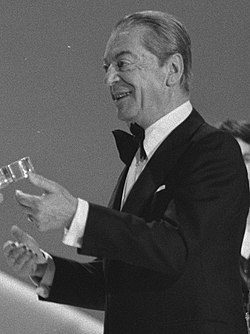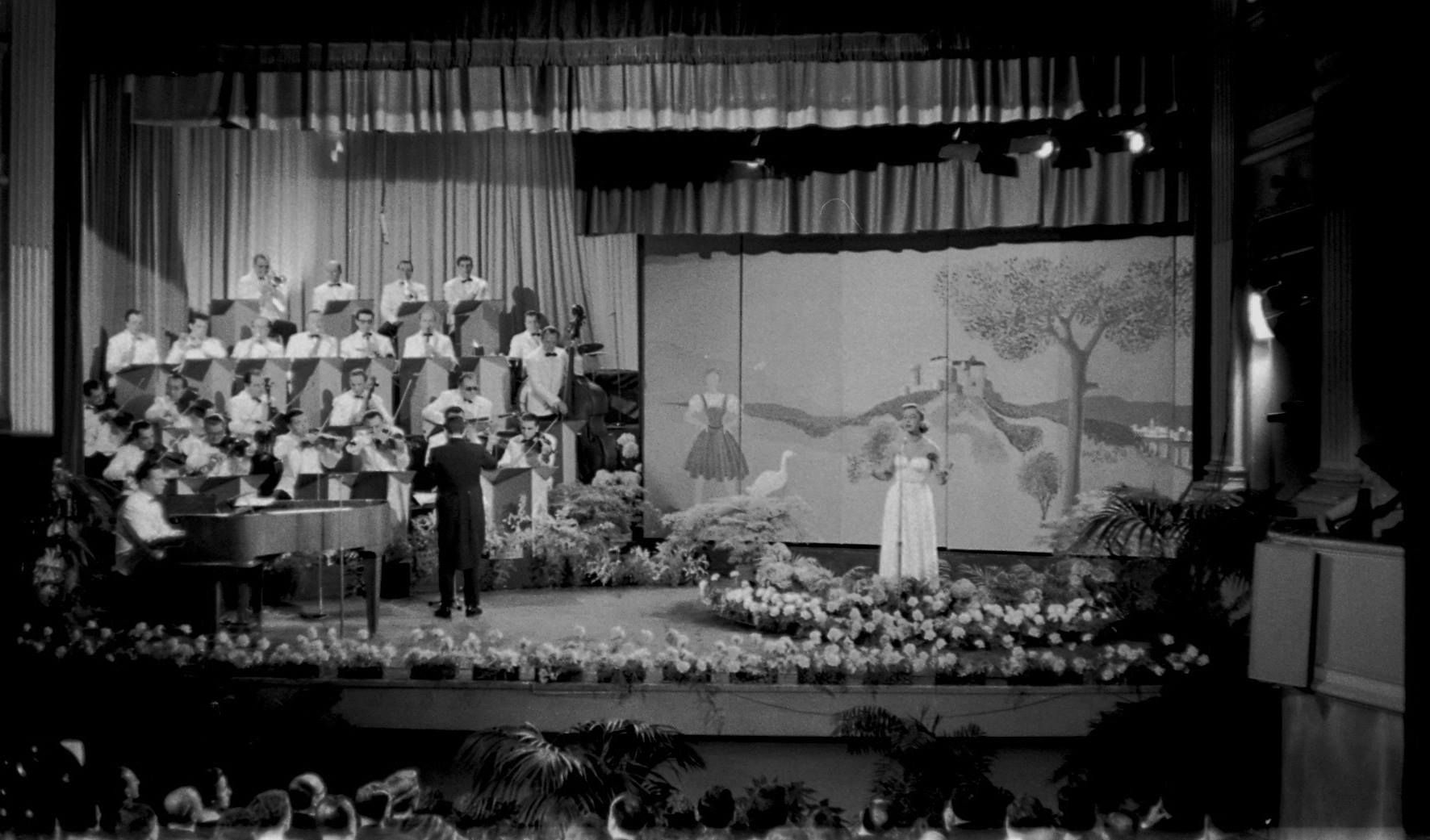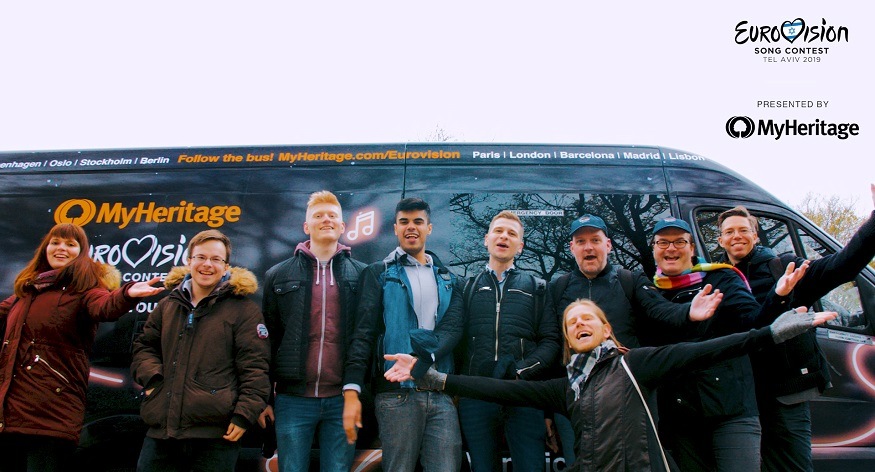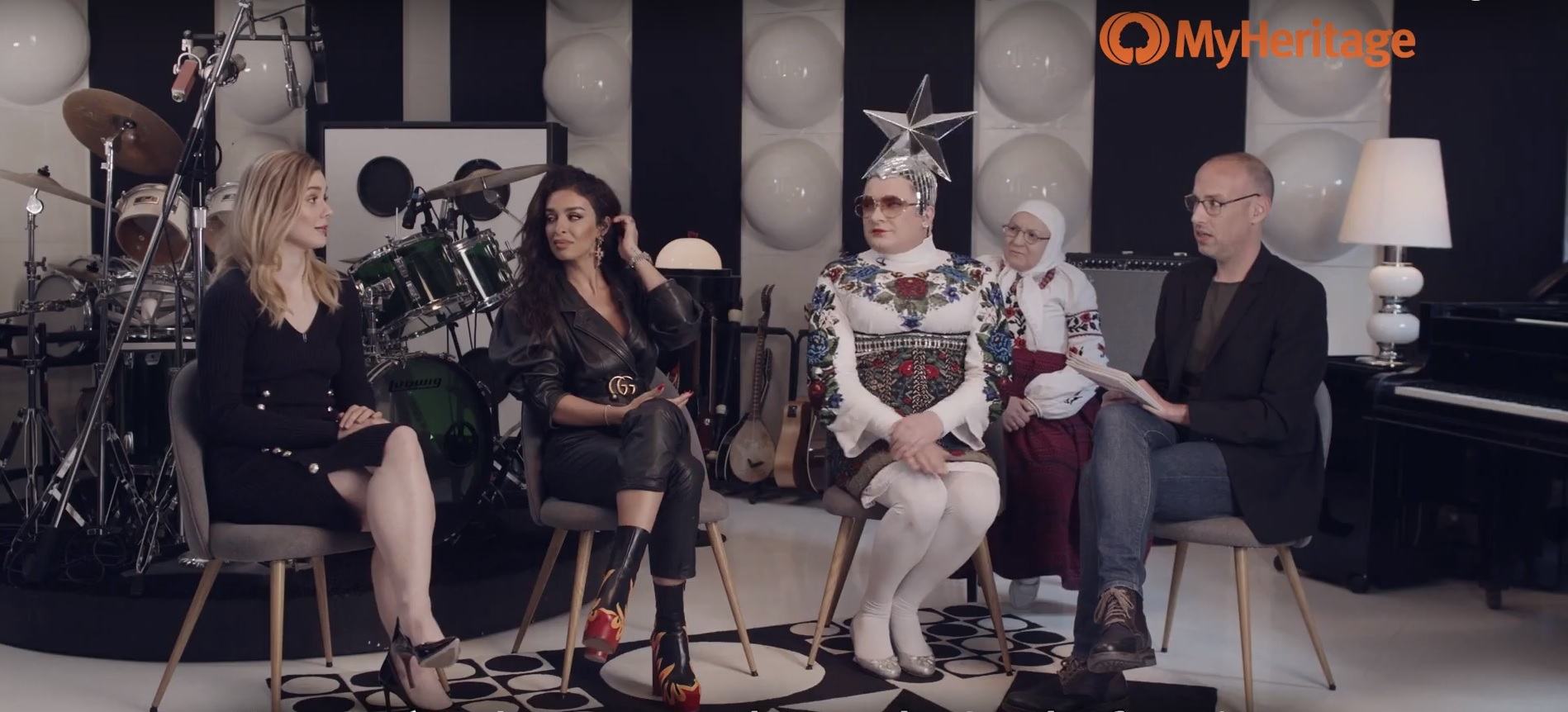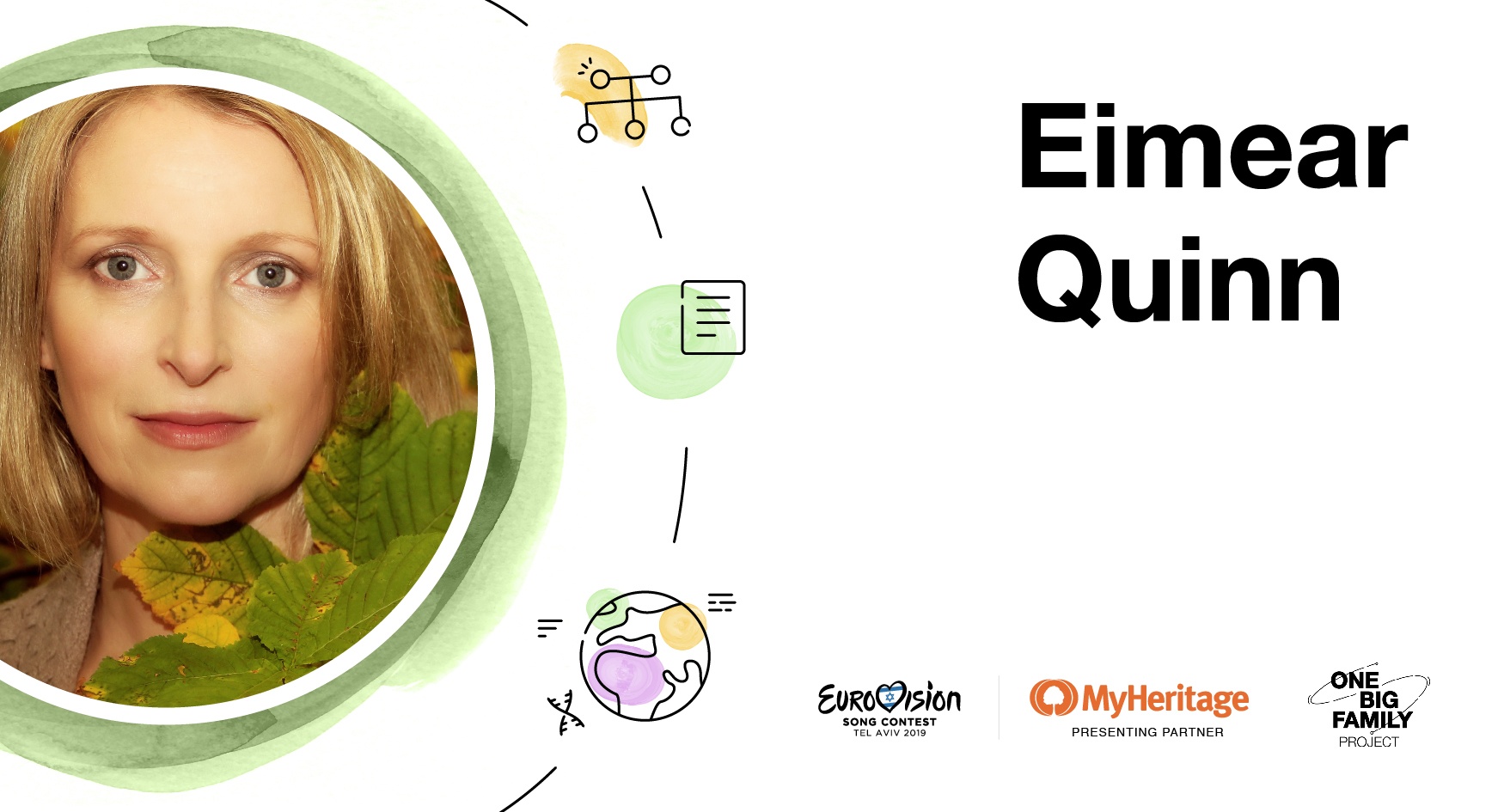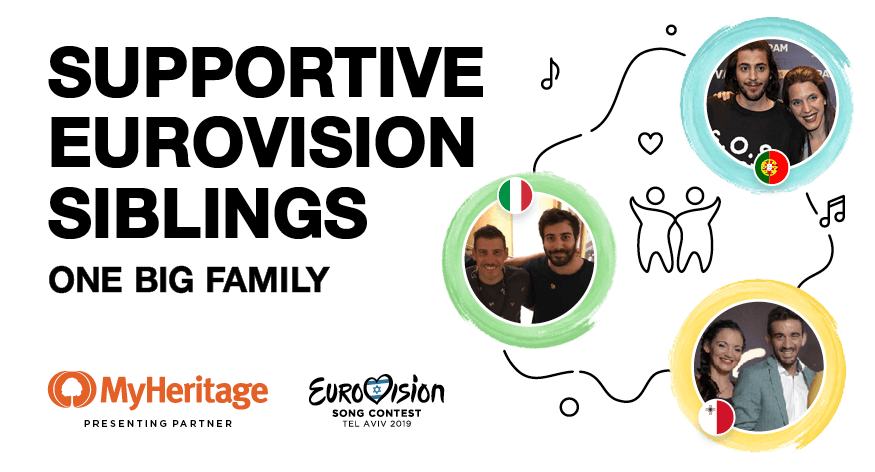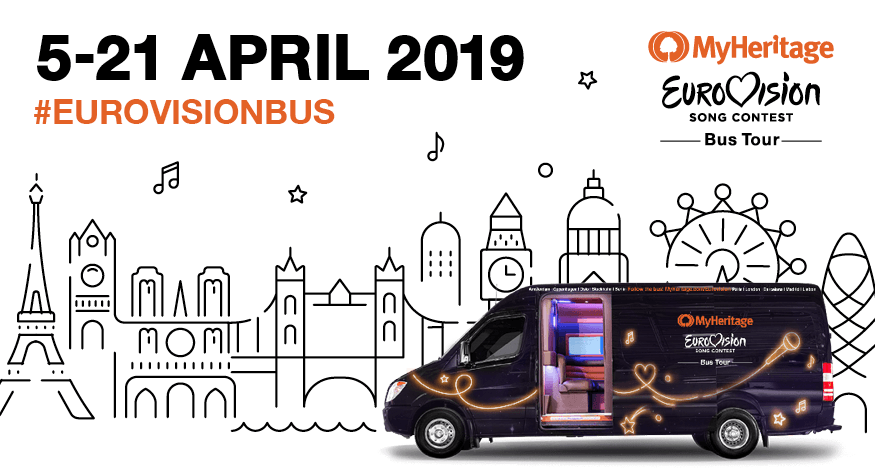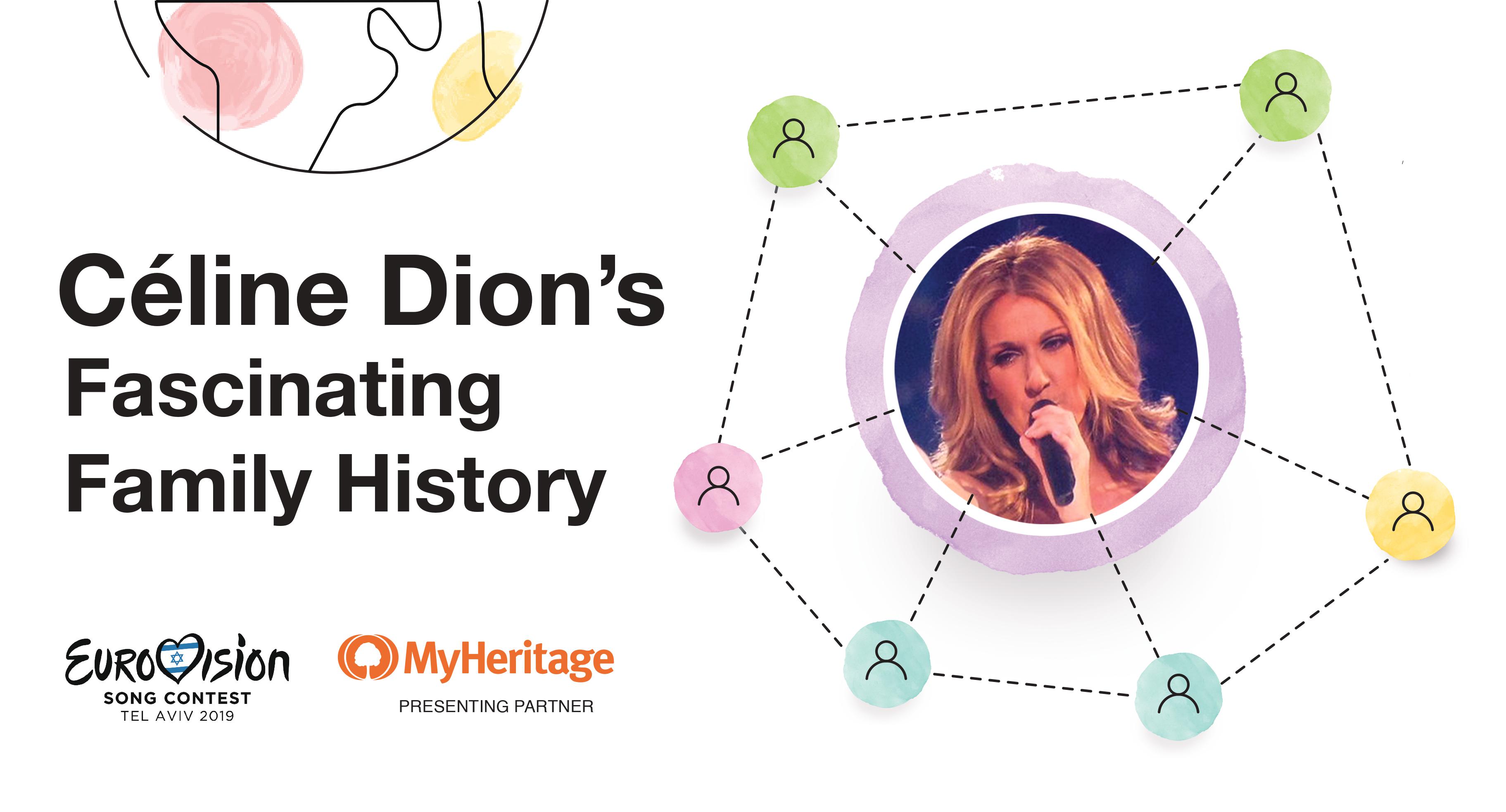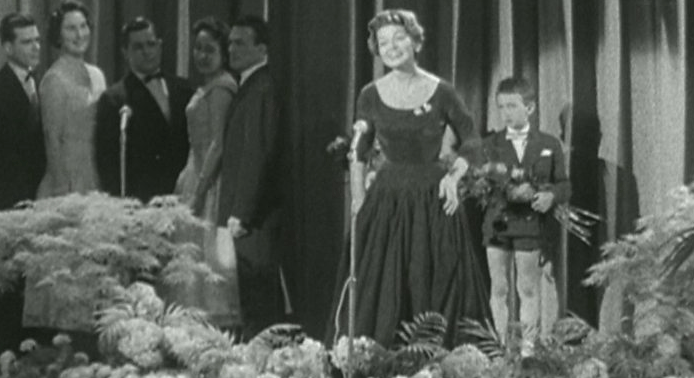

Eurovision is a song contest that brings millions of people together from around the world, all in the name of good talent. Known as the world’s largest music entertainment show, what better way to bring countries closer than with friendly competition for the world to see.
MyHeritage is a global company with a strong user base in Europe, so there was no hesitation for us to partner with the Eurovision Song Contest in 2019. As the event’s main sponsor, MyHeritage has been granted extensive global association and event, media, and digital rights for the upcoming contest. We’re also working with an exclusive group of Eurovision stars — past and present — to take them on a journey of family history discovery. Stay tuned as they discover their ethnic origins and uncover incredible stories about their family history.
Past winners include ABBA in 1974 for Sweden and Celine Dion in 1988 for Switzerland, so it’s no surprise that this year’s competition, to be held in Tel Aviv, is going to be nothing short of sensational.
How did it all begin?
Eurovision began in the 1950s, post-WWII, as an idea by Sergio Pugliese, of Italian television RAI. It was then produced by Marcel Bezençon of the European Broadcasting Union (EBU), under the name “European song contest.”
The idea was to host a singing competition throughout Europe to celebrate humanity while minimizing cultural dissonance. Based on the Italian Sanremo Music Festival, the new competition was designed to test the limits of live television broadcast technology. In those days, it was quite ambitious to attempt to connect so many countries together in an event of this kind.
The first competition was held in 1956 in Switzerland with a live orchestra and simple sing-along songs. Each participant sang in their country’s national language. Seven countries participated – The Netherlands, Switzerland, Belgium, Germany, France, Luxembourg and Italy.
Watch Swiss singer Lys Assia take the initial victory for Switzerland:
https://www.youtube.com/watch?v=IyqIPvOkiRk
Modern-day competition
The contest has grown, with more countries participating each year, particularly after the collapse of the Soviet Union in the late 1980s. There are currently some 40 countries taking part. Voting systems have changed over the years, allowing a combination of jury and televoting ballots to be cast. Each participant is now free to decide the language in which they sing.
Although the contest today differs from that first event in Switzerland decades ago, the idea is still the same — it’s an event that brings people across many nations together in the spirit of friendly competition.
